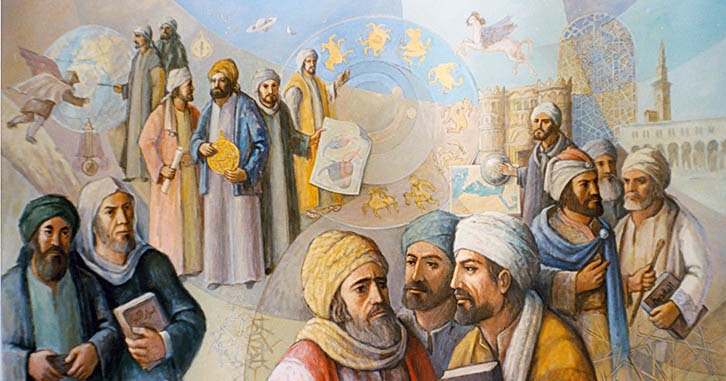The Islamic caliph who minted money for the first time: Who is Abdulmalik bin Marwan?
Minting money and making Arabic the official language of the state led the Islamic state to gain financial and administrative unity for the first time.

(646/47-705) Umayyad caliph. He minted coins for the first time in the Umayyad Empire and made Arabic the official language of the state. Marwan b. Referee and Ayşe b. He is the son of Muawiya. At the age of 16, he was appointed as the head of the Medina council by Muawiya. When an uprising against Yazid I started in Medina in 682, he fled the city and later returned with the Syrian army.
Abd al-Malik ibn Marwan ibn al-Hakam (July/August 644 or June/July 647 – 9 October 705) was the fifth Umayyad caliph, ruling from April 685 until his death in October 705.
He came to the caliphate with the death of his father Marwan bin Hakam in 685. During his caliphate, he protected the integrity of the Umayyad State by fighting against various religious and political rebellions. Minting money and making Arabic the official language of the state led the Islamic state to gain financial and administrative unity for the first time.
When Abdulmalik became the caliph, Abdullah bin Zubayr declared his caliphate in Mecca and gathered a lot of supporters in the Islamic world. However, the uprising of Mukhtar bin Abi Ubayd in Kufa under the rule of Abdullah bin Zubayr forced the fight for the caliphate to be delayed for a while. Mukhtar bin Abi Ubayd, who formed an important power among the Shiites, captured Kufa with a Mahdist teaching and to avenge Ali's son Hussein. The soldiers of Abdullah bin Zubayr, who were sent to Kufa, were defeated. Although Abdülmelik sent an army against Muhtar, he was defeated. In 687, Abdullah bin Zubayr's brother Mus'ab bin Zubayr killed Mukhtar bin Abi Ubayd and Küfe passed back to Abdullah bin Zubayr's rule.
Abdülmelik, who set out from Damascus in 689 to solve the caliphate problem, had to return after an uprising broke out in Damascus. The insurgents led by Amr bin Said al-Ashdak had captured Damascus. Abdülmelik, who besieged the city, said that he would forgive Amr if he surrendered, but killed him after he surrendered. Abdulmalik, who attempted another unsuccessful campaign in 690, finally encountered Abdullah bin Zubayr's brother Mus'ab near Maskin in 691 and defeated him.
A year later, he sent Hajjaj bin Yusuf to Mecca. Hajjaj captured Mecca after a long siege and Abdullah bin Zubayr was killed. With this event, the problem of the caliphate was resolved. Hajjaj, who was rewarded with the governorship of Hejaz for this success, was later brought to the governorship of Iraq and sent against the Kharijites, who had rebelled in some provinces of Iran. Hajjaj, who became famous for his ruthlessness, suppressed this uprising in a short time.
The unity provided by Abdülmelik, who suppressed the Berbers who revolted in North Africa and added this region to the Umayyad State, was mostly based on a military basis. He was able to stand the pressure and violence applied by Hajjaj, especially in Iraq and Iran. However, Abdülmelik also had efforts to go beyond this. The fact that the Umayyad State did not have a currency of its own and the use of Byzantine and Iranian coins in various regions was an obstacle to economic unity. Abdülmelik minted money, aiming to put an end to this. In the administrative field, he made Arabic the official language and tried to ensure that Muslim officials were appointed to all administrative posts. However, this movement could not reach the expected level due to the lack of adequately trained staff among the Arabs. On the other hand, Abdülmelik is the caliph who tried to ensure the unity of the state not only by force but also in the economic and administrative field. The measures he took are the first steps toward the establishment of a centralized structure capable of governing an empire with various ethnic groups within its borders.
